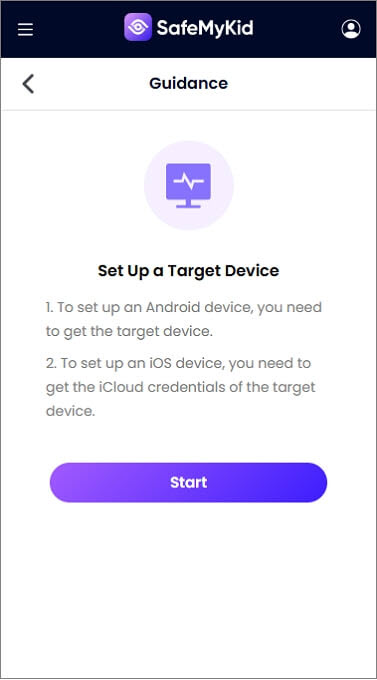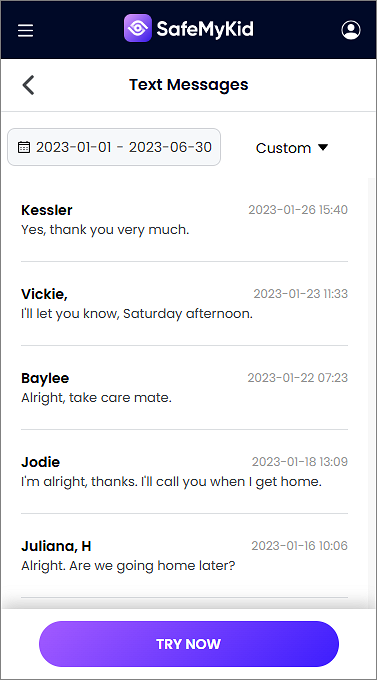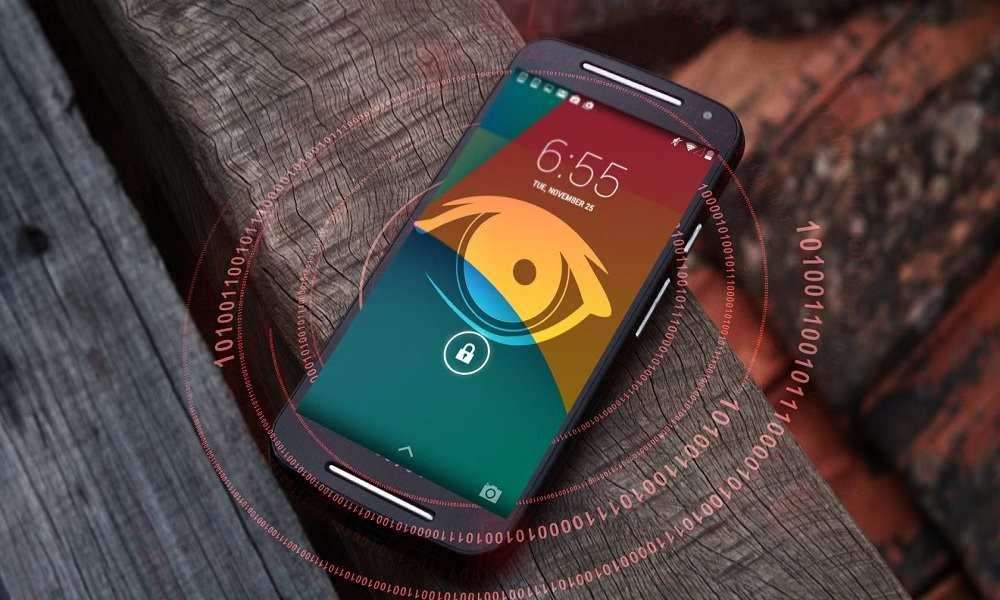Can You Read Someone Else's Text Messages? Check Legal Methods & Ethical Guidelines

In today's digital age, the question "Can you read someone else's text messages" has become increasingly common among parents concerned about their children's safety and individuals seeking relationship transparency.

By understanding the legal framework and available technologies, you can make informed decisions about text message monitoring that respect both privacy rights and legitimate safety concerns.
Why People Ask "Can You Read Someone Else's Text Messages?"
There are several legitimate scenarios where individuals need to understand their options for accessing another person's text messages.
Parents face increasing challenges protecting children from online predators, cyberbullying, and inappropriate content exposure. The ability to monitor communications becomes a crucial tool for identifying threats before they escalate into serious harm.
Additionally, the question of whether you can read someone else's text messages often arises during relationship reconciliation after trust breaches. Couples working through infidelity may agree to temporary transparency measures as part of rebuilding their foundation.
SafeMyKid - The Most Trusted Solution to Read Someone Else's Text Messages

SafeMyKid provides a comprehensive monitoring solution designed specifically for legal scenarios where you can read someone else's text messages, particularly for parental supervision and consensual relationship transparency.
This advanced platform offers sophisticated monitoring capabilities while emphasizing legal compliance and ethical use.
The application works seamlessly across both Android and iOS devices, providing the tools necessary for those who need to monitor text messages within appropriate legal frameworks.
Its powerful features extend beyond simple message reading to provide context about digital communications, helping parents protect children and couples rebuild trust through agreed-upon transparency measures.
Key Features of SafeMyKid to Read Someone Else's Text Messages
When determining if you can read someone else's text messages legally, SafeMyKid provides the technical capabilities needed while maintaining ethical standards.
Complete Message Access - Read all incoming and outgoing text messages, including deleted conversations, with full timestamp and contact information for comprehensive communication oversight.
Multi-Platform Coverage - Monitor messages across SMS, iMessage, WhatsApp, Facebook Messenger, Instagram DMs, and other popular messaging applications where concerning communications often occur.
Real-Time Alerts - Receive immediate notifications for specific keywords, contacts, or conversation patterns that might indicate safety concerns or trust violations.
How to Set up SafeMyKid to Read Someone Else's Text Messages
Implementing SafeMyKid for legal text message monitoring requires just a few simple steps to begin comprehensive communication oversight.
Step 1. Create Your Monitoring Account
Visit the SafeMyKid website to establish your secure monitoring account with appropriate verification.

Step 2. Set up The SafeMyKid Application
For Android: Download and install SafeMyKid directly on the target device (requires brief physical access).
For iOS: Utilize iCloud credentials for remote installation without physical device access.

Step 3. Begin Reading Someone Else's Text Messages
Access your secure dashboard to view all text messages, set up keyword alerts, and monitor communication patterns in real-time.

When used within appropriate legal boundaries, SafeMyKid provides the comprehensive monitoring capabilities needed for legitimate safety and transparency purposes.
5 Legal Considerations about When Can You Read Someone Else's Text Messages
Understanding the legal landscape surrounding text message monitoring is essential before implementing any surveillance solution.
1. Parental Rights for Minor Children
Parents generally have broad legal authority to monitor their minor children's digital communications, including text messages.
Key legal principles include:
- Constitutional parental rights to guide and protect minor children
- No expectation of privacy for minors using parent-provided devices
- Responsibility to protect children from digital dangers
- Authority extends until the child reaches legal adulthood
- State laws may vary regarding specific age limitations
This legal foundation means parents asking "Can you read someone else's text messages" regarding their minor children typically have clear legal standing to do so.
2. Consent-Based Monitoring Between Adults
Adult-to-adult text message monitoring requires explicit consent to remain within legal boundaries.
Consent considerations include:
- Written agreements documenting monitoring permission
- A clear understanding of monitoring scope and duration
- Voluntary participation without coercion
- Right to revoke consent at any time
- Mutual agreement in relationship contexts
Understanding these consent requirements helps answer whether you can read someone else's text messages when dealing with adult family members or partners.
3. Device Ownership Matters
The ownership of the device being monitored significantly impacts the legality of text message reading.
Ownership factors include:
- Devices you own and provide to others
- Company phones with clear usage policies
- Shared family devices with established rules
- Personal devices require explicit permission
- Account holder rights vary by jurisdiction
This ownership dimension often determines whether you can read someone else's text messages without running afoul of privacy laws.
4. Prohibited Scenarios
Certain situations make reading another person's text messages illegal regardless of your relationship or concerns.
Never attempt monitoring when:
- No parental relationship exists with minors
- Adults haven't provided clear consent
- Devices belong entirely to another person
- Workplace monitoring violates employment laws
- Intent involves harassment or stalking
These restrictions emphasize that the answer to "Can you read someone else's text messages" isn't universally permissive.
5. State and Federal Privacy Laws
Various laws govern electronic communications privacy, creating a complex legal framework for text message monitoring.
Relevant legislation includes:
- Electronic Communications Privacy Act (ECPA)
- State-specific privacy statutes
- Computer Fraud and Abuse Act considerations
- Wiretapping laws in two-party consent states
- International privacy regulations for cross-border situations
Understanding these laws helps individuals determine when they can read someone else's text messages within legal boundaries.
How to Read Someone Else's Text Messages without Installing Software
When researching "how to read someone's text messages without installing software", individuals often seek non-invasive methods that don't require direct device modification while still providing message visibility for legitimate purposes.
Several approaches exist that don't require specialized monitoring software installation, though each comes with specific authorization requirements and technical limitations that affect their appropriateness and effectiveness.
Legal and authorized methods that don't require software installation include:
Cloud-Based Account Access - For those with legitimate account credentials, accessing messages through cloud services like iCloud for iOS or Google account for Android sometimes provides message visibility without device software installation.
Web-Based Message Platforms - Services like WhatsApp Web, Facebook Messenger's browser version, or carrier message portals sometimes allow message access from a browser when properly authenticated with legitimate credentials.
Account Recovery Procedures - When assisting family members with forgotten passwords or device issues, standard account recovery processes sometimes provide message access as part of restoration procedures.
Family Sharing Features - Manufacturer-provided family sharing capabilities sometimes include limited message visibility for family organizers, particularly for parents overseeing minor children's devices.
Warning Signs: How to Tell If Someone Is Reading Your Text Messages
Recognizing unauthorized access helps protect privacy and answers the concern "Can someone read my text messages without me knowing?"
Device Behavior Changes
Unusual device behavior often indicates monitoring software installation or unauthorized access attempts.
Performance Indicators:
- Significantly slower device performance
- Rapid battery drain during normal usage
- Increased data usage without explanation
- Frequent app crashes or system freezes
- Unusual background app activity
Account Activity Monitoring
Cloud account activities provide clear evidence when someone gains unauthorized access to your messages.
iCloud Account Signs:
- Unrecognized device logins in account settings
- New devices appearing in trusted device lists
- Changed account recovery information
- Unexpected password reset notifications
- Modified backup and sync settings
Google Account Indicators:
- Suspicious login attempts from unknown locations
- New devices in account security settings
- Changed app permissions for messaging services
- Unexpected account activity notifications
- Modified two-factor authentication settings
Communication Pattern Changes
Behavioral changes in how others respond to your messages may indicate unauthorized monitoring.
Relationship Indicators:
- Partners or family members referencing conversations you haven't shared
- Unusual knowledge of your private communications
- Changes in trust or communication patterns
- Confrontations about conversations with others
- Requests for explanations about messaging activity
Frequently Asked Questions about Reading Someone Else's Text Messages
Understanding these common questions helps clarify when and how you can read someone else's text messages appropriately.
1. Can I read my spouse's text messages without their knowledge?
Without explicit consent, reading your spouse's text messages is generally illegal and could result in criminal charges. Even in states with lenient privacy laws, accessing another adult's private communications without permission violates federal statutes.
If you have concerns about your relationship, consider requesting transparency through mutual agreement or seeking couples counseling to address trust issues constructively.
2. At what age should I stop reading my child's text messages?
There's no universal age when parental monitoring should cease, as maturity levels and circumstances vary significantly. Generally, monitoring should gradually decrease as children demonstrate responsible behavior and approach adulthood.
Many experts suggest transitioning from active monitoring to open dialogue around ages 16-17, maintaining the right to check messages if concerning behavior arises while respecting growing independence needs.
3. Can employers read employee text messages on company phones?
Employers can generally monitor communications on company-owned devices if they've established clear policies notifying employees about monitoring practices. However, personal messages on company devices may still have some privacy protections depending on state laws.
Employers should provide written policies, limit monitoring to business purposes, and avoid accessing clearly personal communications whenever possible.
4. Is it legal to read text messages on a phone I pay for?
Paying for a phone doesn't automatically grant you the right to read messages on it. For minor children, payment combined with parental responsibility typically allows monitoring. For adult family members or partners, payment alone doesn't override privacy rights——you still need consent.
The key factor is the age and consent of the person using the device, not who pays the bill.
5. What happens if I illegally read someone's text messages?
Illegally accessing another person's text messages can result in serious consequences including criminal charges under federal and state laws, civil lawsuits for privacy violations, restraining orders, and potential jail time.
Evidence obtained through illegal monitoring is typically inadmissible in court and could damage your position in custody or divorce proceedings.
Conclusion
The question "Can you read someone else's text messages" doesn't have a simple yes or no answer——it depends entirely on your specific situation, relationship to the person, and applicable laws.
For parents protecting minor children and couples working through trust issues with mutual consent, legal options exist for text message monitoring. However, these capabilities come with significant responsibilities to use them ethically and within legal boundaries.


